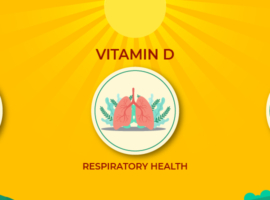Allergies – Causes, Symptoms and Treatment
In today’s world, we are all too familiar with the word ‘allergies’, in fact during our School Health screening programs across India, increasing number of Children are not only aware that they have allergies but in a lot of cases are also aware about what is causing them an allergic break-out.
What Are Allergies?
Allergies are abnormal immune system reactions to things that are typically harmless to most people. When you’re allergic to something, your immune system mistakenly believes that this substance is harmful to your body. (Substances that cause allergic reactions — such as certain foods, dust, plant pollen, or medicines — are known as allergens.)
What Happens in Allergies?
In an attempt to protect the body, the immune system produces IgE antibodies to that allergen. Those antibodies then cause certain cells in the body to release chemicals into the bloodstream
What Are the Signs and Symptoms of Allergies?
Allergic reactions can be mild, like a runny nose, red and watery eyes or they can be serious, like difficulty breathing (especially if you have a history of asthma).
Some types of allergies cause multiple symptoms. And in rare cases, an allergic reaction can become severe — this is called anaphylaxis. Signs of anaphylaxis include trouble breathing or swallowing; swelling of the lips, tongue and throat or other parts of the body; dizziness or loss of consciousness. Reactions to the allergens can be variable and unpredictable.
What Causes Allergies?
Allergies can happen at any age. The tendency to develop allergies is often hereditary, which means it can be passed down through your genes. However, just because a parent or sibling has allergies doesn’t mean you will definitely get them too. A person usually doesn’t inherit a particular allergy, just the likelihood of having allergies.
What Things Are People Allergic to?
Some of the common allergens are:
Airborne particles. Often called environmental allergens, these are the most common allergens. Airborne particles that can cause allergies include dust mites (tiny bugs that live in house dust); mold spores; animal dander (flakes of scaly, dried skin) and dried saliva from your pets; pollen from grass, and trees.
Foods. Food allergies are common in babies and may go away as people get older. Although some food allergies can be serious, many just cause annoying symptoms like an itchy rash, a tingly tongue, or diarrhoea. The most common food allergies are: milk and other dairy products, eggs, wheat, soy, peanuts and tree nuts, and seafood.
Insect stings. The venom (poison) in insect stings can cause allergic reactions, and can be severe and even cause an anaphylactic reaction in some people.
Medicines. Antibiotics are the most common type of medicines that cause allergic reactions. Many other medicines, including over-the-counter medications also can cause allergic reactions.
Chemicals. Some cosmetics or detergents can make people break out in hives. Usually, this is because someone has a reaction to the chemicals in these products, though it may not always be an allergic reaction. Dyes, household cleaners and pesticides also can cause allergic reactions in some people.
How Allergies are Diagnosed?
Finding out what you are allergic to is an important first step to effective allergy treatment. Today allergy tests are more convenient and accurate than before. When combined with a detailed medical history, allergy testing can identify the specific things that trigger your allergic reactions.
How Are Allergies Treated?
There’s currently no cure for allergies (some alternative Medicine streams however, do profess a cure for Allergies), but symptoms can be managed.
The best way to avoid allergic reactions is to stay away from the substances that cause them — called avoidance. Doctors can also treat some allergies using medicines and allergy shots.
Medicines
Medicines (pills or nasal sprays) are often used to treat allergies. Although they can control the allergy symptoms (such as sneezing, headaches, or a stuffy nose), they’re not a cure and can’t make the tendency to have allergic reactions go away.
Allergy Shots
Allergy shots are also referred to as allergen immunotherapy. By getting injections of small amounts of an allergen, a person’s body develops non-allergen antibodies and has other immune system changes that help ease the reaction to that allergen.
Dealing with Allergies
So once you know you have allergies, how do you deal with them? First, try to avoid things you’re allergic to!
- If you have a food allergy, avoid foods that trigger symptoms and read food labels to make sure you’re not eating even tiny amounts of allergens.
- If you have an environmental allergy, keep your house clean of dust or when possible cover your nose, wear eye protection when out in dusty regions. Switching to perfume-free and dye-free detergents, cosmeticsand beauty products (you may see non-allergenic ingredients listed as hypoallergenicon product labels) mayalso help.
If you’re taking medicine, follow the directions carefully and make sure your regular doctor is aware of anything an allergist gives you (like shots or prescriptions). If you have a severe allergy, consider wearing a medical emergency ID which will explain your allergy and who to contact in case of an emergency.
If you’ve been diagnosed with allergies, you have a lot of company. And the good news is that doctors and scientists are working to better understand allergies, to improve treatments, and to possibly prevent allergies altogether.




